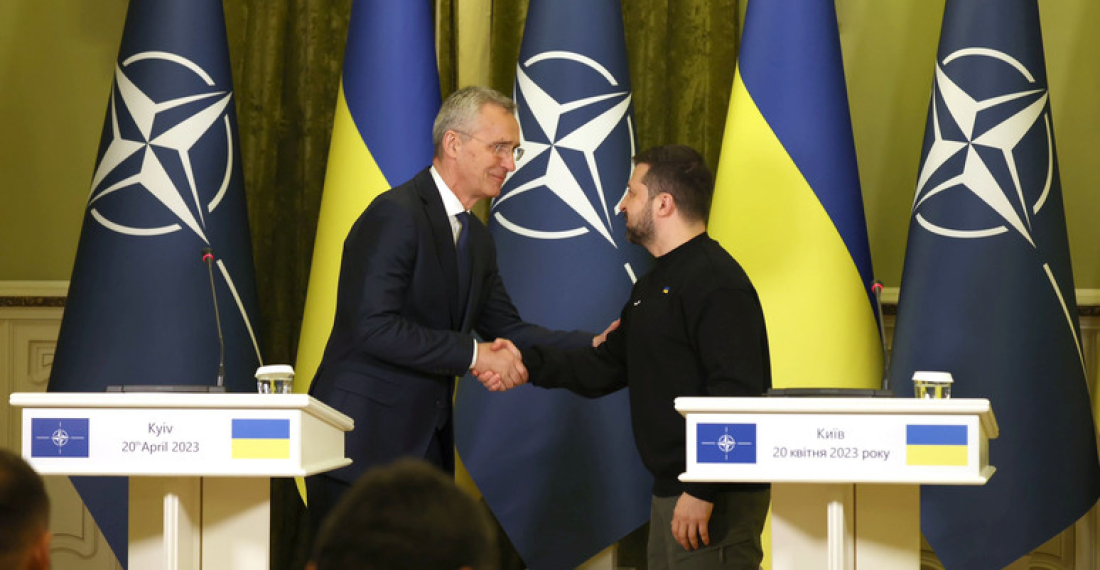The NATO Secretary-General Jens Stoltenberg has arrived in Kyiv on an unannounced visit on Thursday (20 April).
"Ukraine’s rightful place is in the Euro-Atlantic family. Ukraine’s rightful place is in NATO. And over time, our support will help to make this possible," said the Secretary-General in Kyiv.
He underlined that a multi-year support initiative will help Ukraine transition from Soviet-era equipment and doctrines to NATO standards, and ensure full interoperability with the Alliance, calling this "a testament to NATO’s long-term commitment to Ukraine."
As Russia's invasion and occupation of large swathes of Ukraine continues, Kyiv has continued to push for membership of the military alliance. At a press conference in Brussels on 3 April, Stoltenberg said that "NATO's position remains unchanged and that Ukraine will become a member of the alliance."
"The first step toward any membership of Ukraine to NATO is to ensure that Ukraine prevails, and that is why the U.S. and its partners have provided unprecedented support for Ukraine," he added.
The Netherlands and Denmark to purchase and donate 14 Leopard 2 tanks to Ukraine
Meanwhile, the Danish Broadcasting Corporation announced on Thursday that they and the Netherlands would jointly purchase 14 Leopard 2 tanks and donate to Ukraine "by early 2024".
This announcement comes after the Danish government pledged 100 Leopard 1 tanks, at least 80 of which will be transferred to Ukraine by the end of 2023, with transfers beginning "by the summer".






